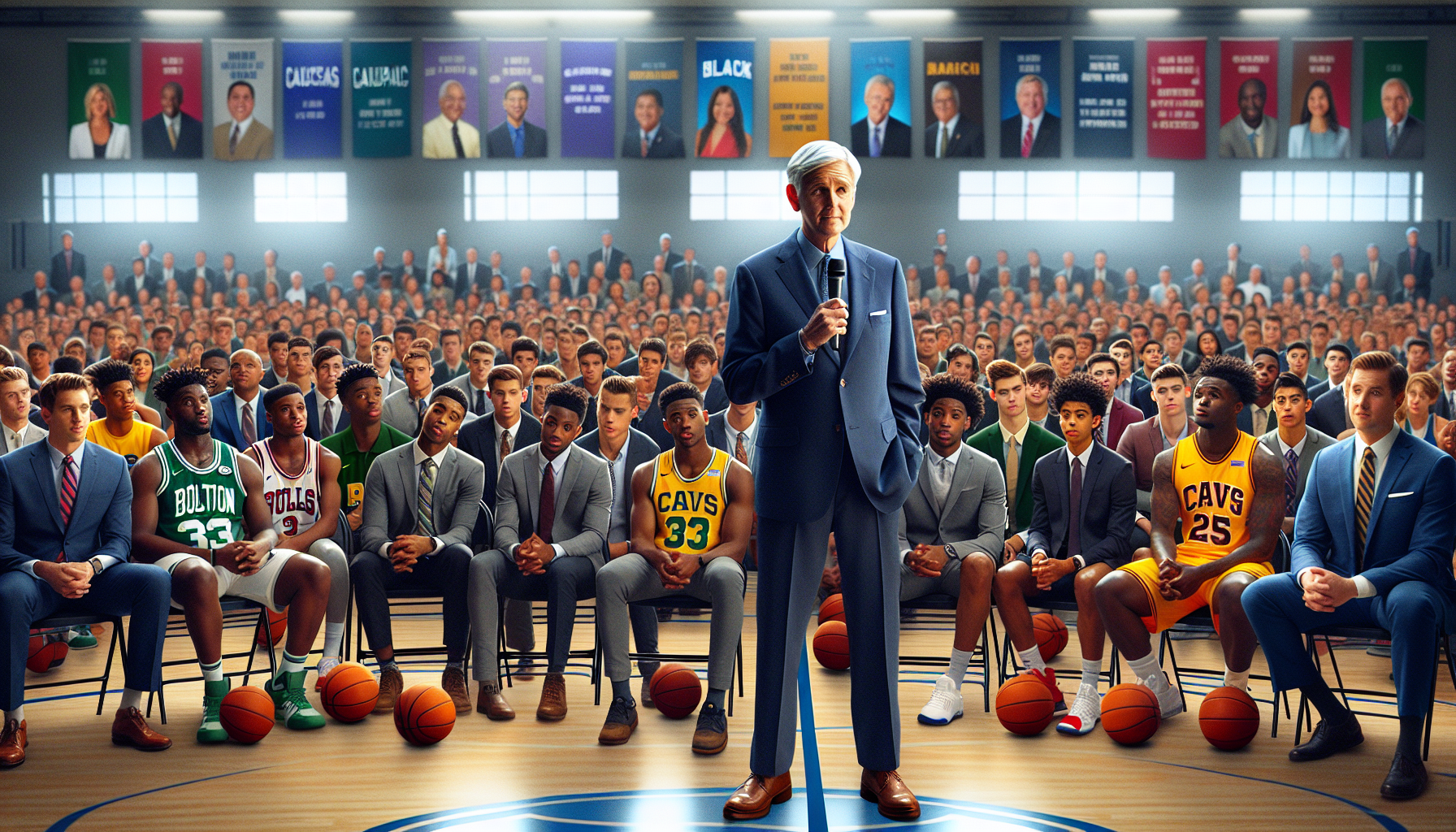The retirement of legendary college basketball coach, Tony Bennett, has sent waves through the world of college sports. Known for his strategic brilliance and leadership at the helm of the Virginia Cavaliers men’s basketball team, Bennett not only steps away from coaching but brings to attention critical issues facing college athletics today. In an emotional farewell press conference, he singled out Name, Image, and Likeness (NIL) legislation as a pivotal factor influencing his decision to retire, sparking a broader debate about necessary changes in the college sports landscape.
Tony Bennett’s Impact on College Basketball
Tony Bennett’s contribution to college basketball is monumental. His tenure at the University of Virginia has been marked by a culture of discipline and excellence. Under his leadership, the Cavaliers captured the NCAA championship in 2019, showcasing Bennett’s innovative defensive strategies and commitment to developing players both on and off the court. His influence extends beyond wins and losses; Bennett has been a mentor and role model to countless athletes, advocating for educational and personal growth alongside athletic achievement.
Understanding the NIL Revolution
The introduction of NIL rights in college sports allows athletes to profit from their personal brand. While this landmark shift empowers athletes economically, its implementation has raised concerns about fairness and team dynamics. For coaches like Tony Bennett, the pressures introduced by NIL magnify the challenges of maintaining team cohesion and focus.
The concerns surrounding NIL are not solely about financial equity among players. Coaches must navigate the complexities of a new landscape where athletes may have competing priorities. The potential disruption in locker room harmony can affect recruitment, retention, and ultimately, the integrity of sportsmanship that college sports are traditionally known for.
The Call for Change in College Sports
During his retirement announcement, Bennett emphasized the necessity for reform in college sports, urging stakeholders to establish clear guidelines and ethical standards for NIL. His call to action is aimed at maintaining the core values of collegiate competition: teamwork, discipline, and educational advancement.
Bennett’s perspective underscores a need for:
- Comprehensive NIL regulation to ensure equitable opportunities for all athletes.
- Support systems to help young athletes navigate financial and branding opportunities responsibly.
- Policies emphasizing the educational and personal development of athletes alongside their sporting commitments.
The Broader Implications of Bennett’s Retirement
Bennett’s retirement sheds light on broader implications for college sports. It highlights the ongoing tension between commercial interests and the educational mission of college athletics. As schools and governing bodies consider the future of college sports, Bennett’s insights offer a valuable perspective for ensuring that the welfare of student-athletes remains the primary focus.
Moreover, his retirement invites other coaches and athletic programs to critically evaluate how the NIL landscape is being managed across different sports and institutions. The balance between supporting athletes’ rights and preserving traditional values of college sports is delicate and requires a collaborative approach involving coaches, administrators, and policy makers.
Lessons from Bennett’s Leadership
Tony Bennett’s legacy extends beyond his achievements on the court. He serves as a reminder of the importance of leadership that prioritizes ethics and player welfare. Coaches can learn from Bennett’s balanced approach to managing individual player success while cultivating a team-centric environment.
The challenges introduced by NIL require a new kind of leadership in college athletics—one that is attuned to the evolving dynamics of modern sports while remaining steadfast in nurturing young athletes’ personal growth and professional potential.
Administrators and athletic directors are encouraged to take cues from Bennett’s proactive stance on reform, advocating for policies that uphold the educational integrity of college sports while embracing the innovative opportunities presented by NIL.
Navigating the Future of College Sports
The path forward for college sports involves a unified effort to integrate NIL rights without undermining the foundational values of teamwork, fair play, and education. As the NCAA and individual conferences re-evaluate policy measures, a collaborative approach that includes input from all stakeholders—coaches, players, university officials, and regulatory bodies—will be essential for sustainable progress.
Bennett’s call for change is a crucial reminder of the potential impact of unchecked commercialization on college athletics. By prioritizing the holistic development of student-athletes and establishing equitable frameworks for NIL, the future of college sports can thrive, honoring both tradition and progress.
For more comprehensive insights on improving college sports policy, athletes, educators, and policymakers might explore resources such as the NCAA’s official website and initiatives by organizations like The Knight Commission on Intercollegiate Athletics, which promote reforms aligned with collegiate educational missions.

